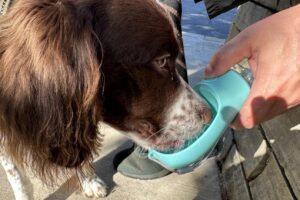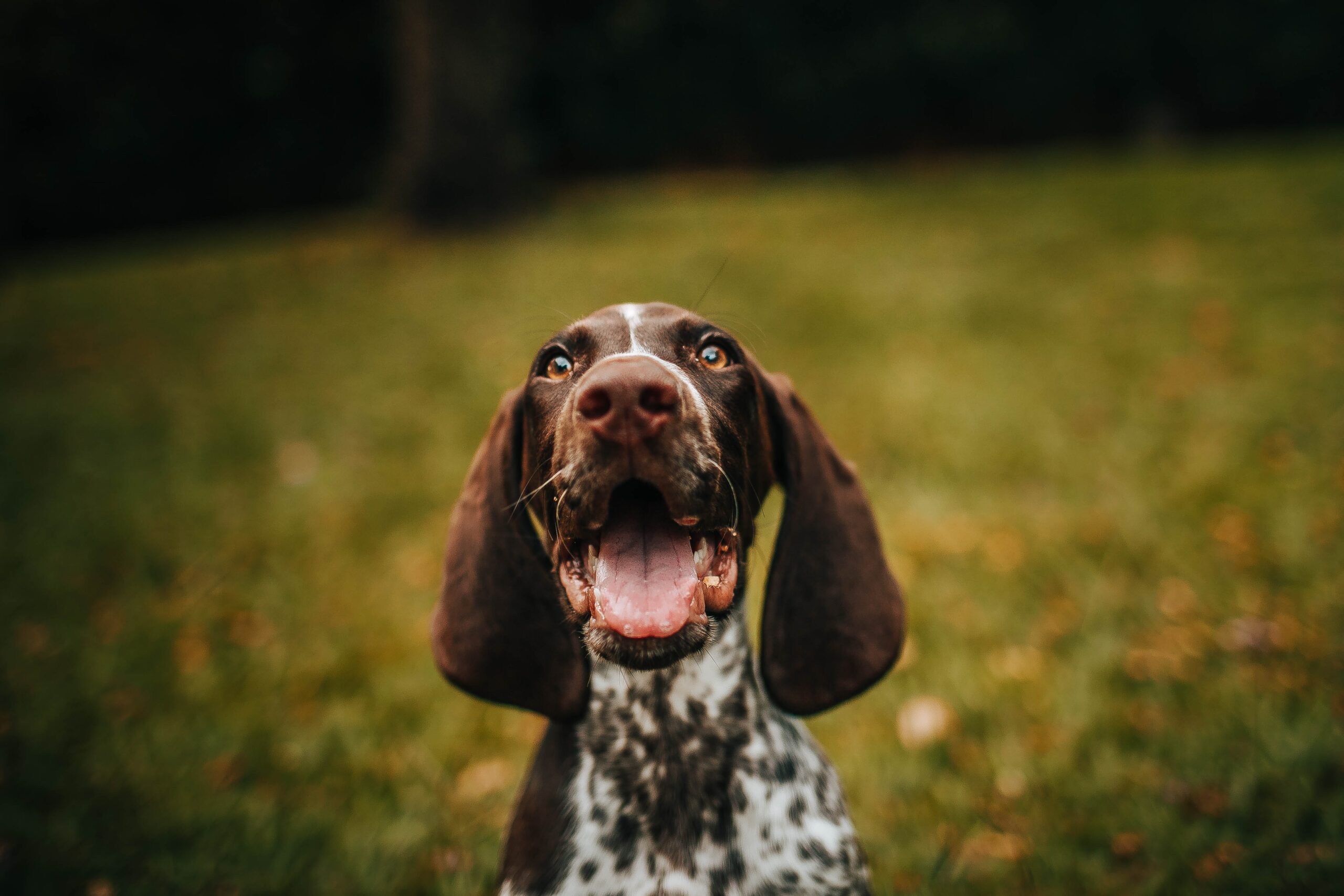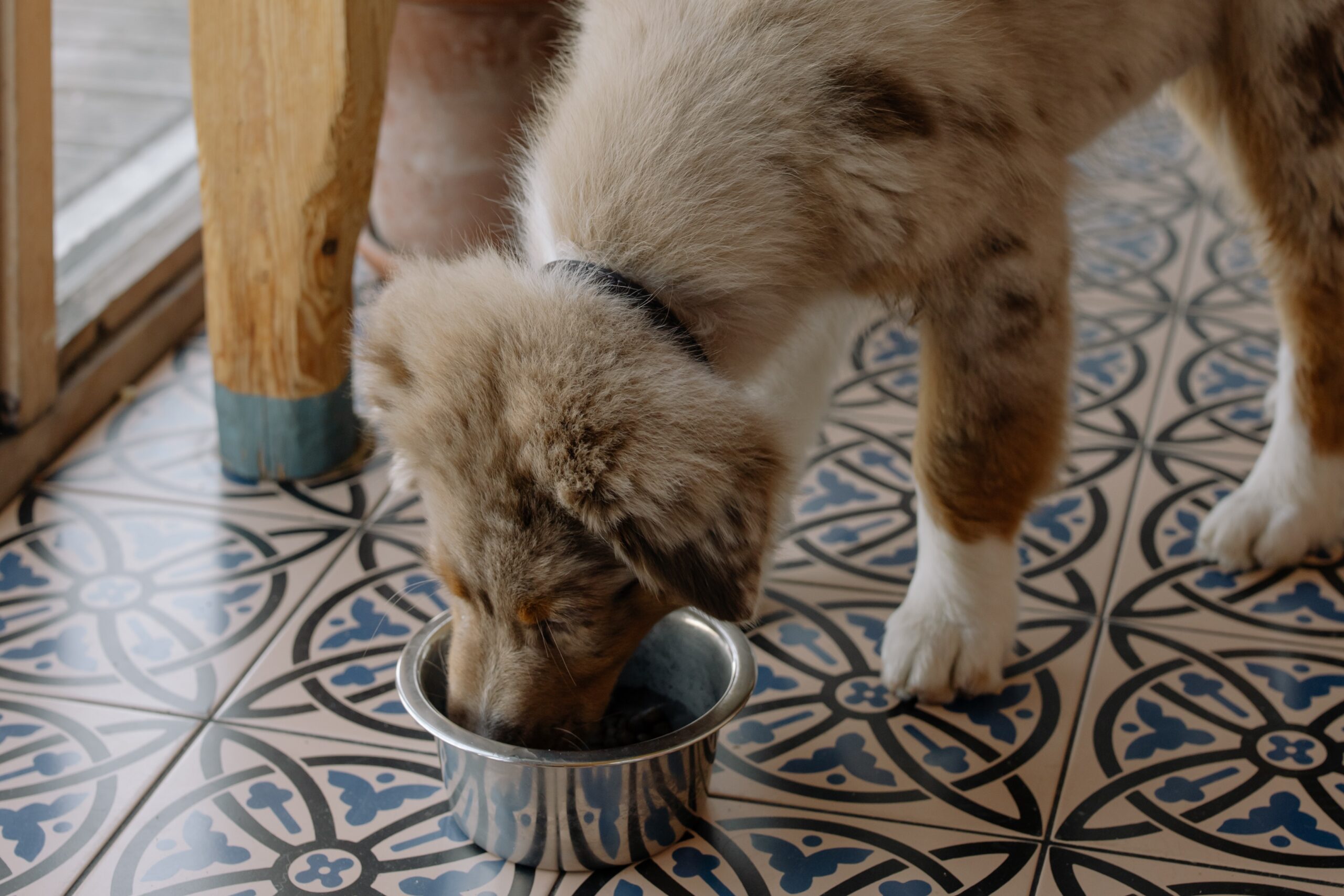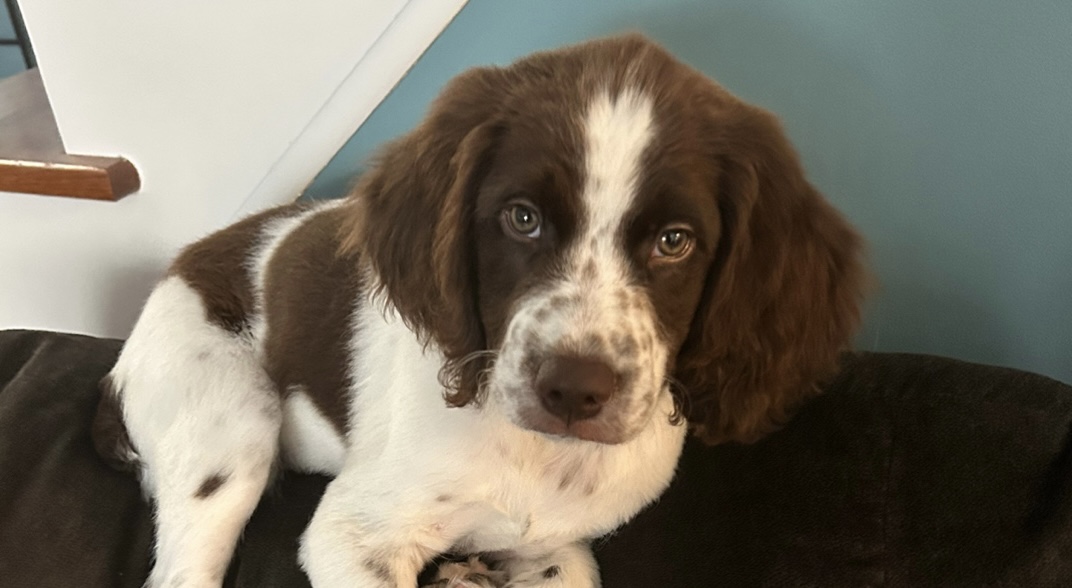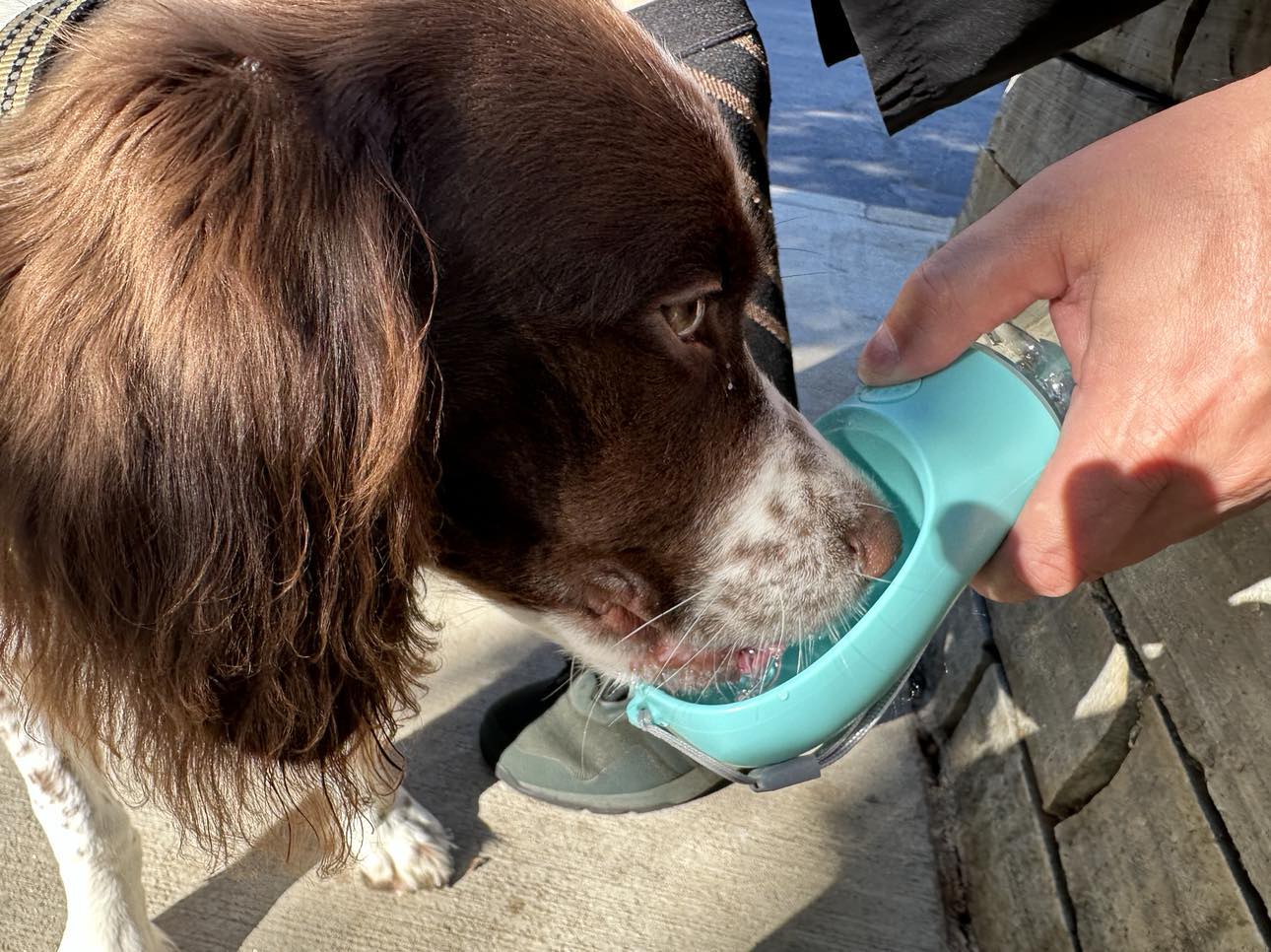Our four-legged companions, with their charming and sometimes mystifying behaviors, never fail to captivate us. Among these intriguing behaviors, one that might catch your attention is the quivering of your dog’s lips. Picture this: you’re sitting with your furry friend, enjoying a quiet moment, when suddenly, you notice their lips tremble or quiver. While it might seem like a minor curiosity, understanding and interpreting such behavior is crucial for responsible pet ownership.
As pet owners, we share a deep bond with our dogs, often attuned to their needs and emotions. Recognizing and interpreting unusual behaviors is a fundamental aspect of ensuring our pets’ well-being. Just as we would pay attention if our dog suddenly limped or exhibited changes in appetite, quivering lips deserve the same level of attention. These subtle cues can offer insights into our dogs’ physical health and emotional state, serving as a window into their world of non-verbal communication.
The enigma of quivering lips in dogs is multi-faceted, stemming from a combination of physiological, psychological, and environmental factors. This article delves into the heart of this phenomenon, exploring the underlying causes and shedding light on the potential implications. From the physical sensations and emotional responses that trigger lip quivering to possible medical conditions that may underlie this behavior, we will uncover the layers of meaning behind this seemingly innocuous yet intriguing quirk.
Join us as we embark on a journey to unravel the mysteries behind your dog’s quivering lips. By the end of this exploration, you’ll be equipped with a deeper understanding of your canine companion, empowered to ensure their happiness, health, and comfort.
Anatomy of a Dog’s Lips
Explaining the Basic Anatomy of a Dog’s Lips and Their Functions
To comprehend the phenomenon of lip quivering in dogs, it’s essential to first grasp the intricate anatomy of their lips and the pivotal functions they serve. A dog’s lips, while often overlooked, play a crucial role in their sensory perception and communication. Comprising a combination of delicate skin and underlying muscles, these lip structures contribute to a dog’s ability to explore and interact with their environment.
Highlighting the Role of Muscle Movements in Lip Quivering
The captivating quivering of a dog’s lips finds its origin in the intricate dance of muscles beneath the surface. Just as muscles enable a dog to run, jump, and play, they are also responsible for the nuanced movements of the lips. The twitching or trembling of these muscles can manifest as the subtle quivering that catches our attention. These muscle movements can be influenced by a variety of factors, including both conscious responses to stimuli and involuntary reactions.
Emphasizing the Connection Between Lip Quivering and Underlying Physiological Processes
Delving deeper, we uncover the fascinating link between lip quivering and the intricate physiological processes occurring within a dog’s body. Quivering lips can be a manifestation of the interplay between the nervous system, hormonal responses, and sensory input. For instance, stress or excitement can trigger a cascade of physiological reactions, resulting in the quivering of the lips as a visible expression of these internal dynamics.
This connection between lip quivering and underlying physiological processes underscores the complexity of our canine companions’ responses to their surroundings. By understanding this intricate interplay, we gain valuable insights into how our dogs experience the world around them. In the following sections, we will explore the various causes behind lip quivering, from the physical sensations that prompt these muscle movements to the emotional and medical factors that contribute to this unique behavior.
Common Causes of Lip Quivering in Dogs
Physical Sensations and Reactions
- Cold Weather or Shivering When the temperature drops, dogs may exhibit lip quivering as part of their shivering response, aimed at generating body heat to counteract the cold.
- Pain or Discomfort Lip quivering can sometimes indicate pain or discomfort caused by injuries, dental issues, joint problems, or other underlying health concerns.
- Nervousness or Anxiety Dogs may experience quivering lips when confronted with unfamiliar or stressful situations, reflecting their emotional response to anxiety or nervousness.
Emotional and Behavioral Factors
- Stress and Fear Lip quivering might result from stress or fear, often triggered by loud noises, new environments, or encounters with intimidating individuals or animals.
- Excitement or Anticipation Dogs can display quivering lips as a response to heightened excitement or anticipation, such as before mealtime, play, or a walk.
- Submission or Appeasement Behavior In certain social interactions, lip quivering can be a submissive gesture, signaling submission or an attempt to appease a more dominant individual.
Medical Conditions
- Neurological Issues Neurological problems like seizures or nerve disorders can lead to muscle tremors, including quivering lips, as a manifestation of the underlying condition.
- Dental Problems Pain or discomfort from dental issues, such as gum inflammation or dental decay, can contribute to lip quivering in dogs.
- Muscle Fatigue or Weakness Fatigued or weakened muscles, possibly due to overexertion or underlying health issues, can result in quivering lips as a visible manifestation of physical strain.
As a responsible pet owner, it’s important to consider these potential causes when observing lip quivering in your dog. By identifying the root cause behind this behavior, you can take appropriate steps to address their needs, whether it involves providing comfort, alleviating stress, or seeking medical attention. The next section will guide you in recognizing when lip quivering might signal a more serious concern, helping you make informed decisions for your furry friend’s well-being.
When to Be Concerned
Differentiating Between Normal and Abnormal Lip Quivering
Not all instances of lip quivering in dogs warrant immediate concern. It’s important to differentiate between normal, occasional lip quivering and potentially concerning occurrences. Normal lip quivering may arise from temporary factors like cold weather or mild excitement. However, persistent or frequent quivering, especially in the absence of apparent triggers, should prompt closer attention and potential intervention.
Recognizing Signs of a More Serious Underlying Problem
While lip quivering itself might not always be a cause for alarm, it can sometimes serve as a subtle indicator of an underlying health issue. Be watchful for accompanying symptoms that could signal a more serious problem, such as:
- Weakness or Lethargy: If your dog appears weak or lethargic in addition to lip quivering, it might suggest an underlying medical condition.
- Changes in Behavior: Noticeable shifts in your dog’s behavior, such as decreased appetite, excessive drooling, or reluctance to engage in activities they normally enjoy, could point to an issue that requires attention.
- Seizures: Lip quivering accompanied by full-body seizures, loss of consciousness, or other seizure-related symptoms demands immediate veterinary care.
Highlighting the Importance of Seeking Veterinary Attention if Necessary
Your dog’s well-being is a top priority, and seeking professional guidance is crucial if you have concerns about their health or behavior. If you observe persistent or worrisome lip quivering, it’s wise to consult a veterinarian. Their expertise can help determine whether the behavior is benign or indicative of an underlying problem. Early detection and intervention can lead to more effective treatments and a better outcome for your furry companion.
Remember, as a devoted pet owner, you are your dog’s advocate. Trust your instincts and take action when necessary to ensure your canine friend enjoys the best possible quality of life. In the upcoming section, we’ll explore steps you can take to address and manage lip quivering in your dog, promoting their comfort and overall well-being.
Steps to Address Lip Quivering
Observation and Documentation
- Monitor the Frequency and Duration of Lip Quivering Episodes: Keep track of how often your dog’s lips quiver and how long each episode lasts. This information can help your veterinarian understand the pattern and severity of the behavior.
- Note Any Accompanying Symptoms or Changes in Behavior: Pay attention to any additional signs, such as changes in appetite, energy levels, or overall demeanor. Documenting these details will provide valuable insights for both you and your veterinarian.
Environment and Comfort
- Ensure a Comfortable and Safe Environment: Create a soothing and secure space for your dog, complete with their bed, toys, and a quiet corner where they can retreat if they feel stressed or anxious.
- Minimize Stressors and Triggers: Identify potential triggers for lip quivering, such as loud noises, new people or animals, or unfamiliar surroundings. Take steps to minimize these stressors or gradually desensitize your dog to them.
Veterinary Consultation
- Stress the Importance of Consulting a Veterinarian for Proper Diagnosis: If you’re concerned about your dog’s lip quivering, consult a veterinarian. A professional evaluation is essential to rule out any underlying medical conditions and provide accurate guidance.
- Describe the Potential Diagnostic Process, Including Physical Examination and Tests: Be prepared to share your observations and documentation with the veterinarian. They may conduct a thorough physical examination and recommend additional tests, such as bloodwork or imaging, to identify any potential health issues.
Treatment and Management
- Outline Potential Treatments Based on the Underlying Cause: Treatment options will depend on the cause of the lip quivering. Your veterinarian may prescribe medications, recommend dietary changes, or suggest specific therapies to address any identified health concerns.
- Discuss Behavior Modification Techniques and Stress Management Strategies: If stress or anxiety is contributing to the lip quivering, your veterinarian may suggest behavior modification techniques or refer you to a professional dog trainer or behaviorist. Additionally, stress management strategies, such as exercise, mental stimulation, and relaxation techniques, can help alleviate anxiety and improve your dog’s overall well-being.
By following these steps, you can take a proactive approach to address your dog’s lip quivering and provide them with the care and support they need. Remember that your commitment to understanding and addressing this behavior reflects your dedication to your furry friend’s happiness and health. In the final section, we’ll explore preventive measures that can help minimize the occurrence of lip quivering and promote a harmonious relationship with your dog.
Preventive Measures
Tips for Reducing the Likelihood of Lip Quivering Episodes
- Maintain a Consistent Routine: Dogs thrive on predictability. Establish a regular daily routine for feeding, exercise, and rest to help minimize stress and create a sense of security.
- Gradual Exposure to Stressors: If you’ve identified specific triggers for your dog’s lip quivering, gradually expose them to these triggers in controlled settings. Positive associations and desensitization can help reduce anxiety over time.
- Provide Mental and Physical Stimulation: Engage your dog in activities that challenge their mind and body, such as puzzle toys, obedience training, or interactive play. Mental and physical stimulation can help keep them engaged and alleviate boredom.
Importance of Regular Veterinary Check-ups
- Scheduled Wellness Exams: Regular veterinary visits are crucial for maintaining your dog’s health. Annual or bi-annual check-ups can help catch potential issues early and provide opportunities to discuss any concerns, including lip quivering.
- Communication with Your Veterinarian: Keep your veterinarian informed about any changes in your dog’s behavior, even if they seem minor. Open communication ensures that your dog’s overall well-being is being monitored closely.
Promoting a Healthy and Stress-Free Lifestyle for Your Dog
- Balanced Nutrition: Feed your dog a well-balanced diet tailored to their specific nutritional needs. Proper nutrition supports their physical health and can contribute to overall calmness.
- Adequate Exercise: Regular physical activity is essential for your dog’s mental and physical health. Exercise helps burn off excess energy, reduce stress, and maintain a healthy weight.
- Create Safe Spaces: Provide your dog with a designated safe space where they can retreat when they feel anxious or stressed. This could be a cozy corner with their bed or a crate covered with a blanket.
- Positive Reinforcement: Use positive reinforcement techniques to reward good behavior. Positive interactions build trust and confidence, which can contribute to a more relaxed and stress-free demeanor.
By implementing these preventive measures, you can create an environment that fosters your dog’s well-being and minimizes the likelihood of lip quivering episodes. Your commitment to understanding their needs and providing a supportive atmosphere sets the stage for a happy, healthy, and harmonious relationship with your furry companion. In conclusion, let’s recap the insights gained throughout this article and emphasize the importance of proactive care for your beloved canine friend.
Conclusion
Summarizing the Key Takeaways Regarding Lip Quivering in Dogs
The journey into the world of lip quivering in dogs has unveiled a rich tapestry of potential causes, from physical sensations and emotional responses to underlying medical conditions. These subtle movements of the lips can offer valuable insights into your furry friend’s well-being, acting as a bridge between their internal experiences and their outward expressions.
Encouraging Responsible Pet Ownership and Awareness of Your Dog’s Behavior
As pet owners, it is our privilege and responsibility to be attuned to our dogs’ needs, emotions, and behaviors. By fostering a deeper understanding of lip quivering and other non-verbal cues, we empower ourselves to provide the best possible care for our loyal companions. Let this exploration of lip quivering serve as a reminder to remain vigilant, compassionate, and receptive to the signals your dog sends your way.
Reiterating the Significance of Seeking Professional Advice for Persistent or Concerning Lip Quivering Incidents
While some instances of lip quivering may be benign, others may serve as windows into underlying health issues that require prompt attention. The value of consulting a veterinarian cannot be overstated. Just as your dog relies on you for their well-being, you can rely on veterinary expertise to guide you through proper diagnosis, effective treatment, and preventive measures.
In the grand symphony of your dog’s life, lip quivering is just one note, but it carries a melody of information waiting to be deciphered. Armed with the knowledge gained from this exploration, you stand poised to provide the care, comfort, and understanding that your canine companion truly deserves. As you navigate the path ahead, may your bond with your dog flourish, strengthened by your commitment to their happiness, health, and harmonious existence.




